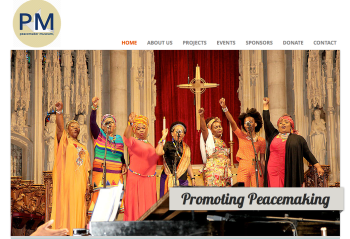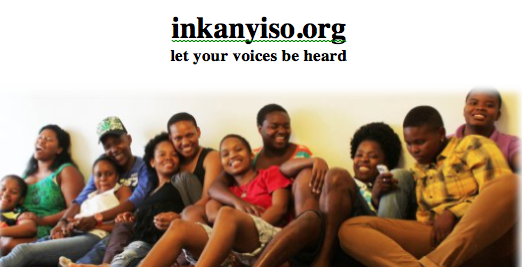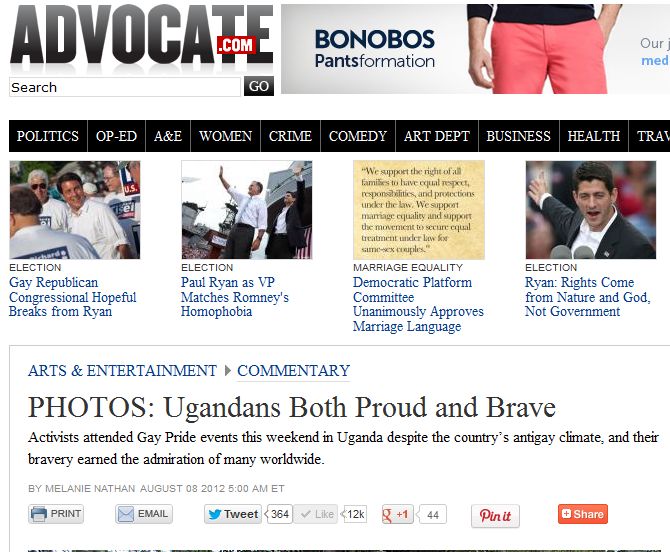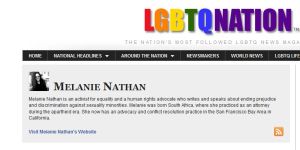By Melanie Nathan, April 30, 2012.
 While the United States has yet to publish its annual (2011) Human Rights Report, the United Kingdom’s Foreign Office issued its 392 page report on human rights today and the LGBT section can be found at page 68 as follows:-
While the United States has yet to publish its annual (2011) Human Rights Report, the United Kingdom’s Foreign Office issued its 392 page report on human rights today and the LGBT section can be found at page 68 as follows:-
Lesbian, gay, bisexual and transgender rights
The Government is committed to the promotion and protection of the rights of lesbian, gay, bisexual and transgender (LGBT) people as an integral part of its wider international human rights work.
It is our view that to render consenting same-sex relations illegal is incompatible with international human rights law, including the International Covenant on Civil and Political Rights (ICCPR). Despite this, same-sex relations continue to be criminalised in over 70 countries, and discrimination and violence against LGBT people because of their sexual orientation and gender identity continues, including in countries where legislation exists to protect LGBT people.
The UK believes that human rights should apply equally to all, and in this regard we oppose all forms of violence and discrimination against LGBT people. We promote and protect the rights of LGBT people through international institutions including the UN, EU, Council of Europe and the Commonwealth. Through these institutions and through our embassies and high commissions we take action on individual cases where persecution or discrimination has occurred and lobby for changes in discriminatory practices and laws.
In March the Government published Working for Lesbian, Gay, Bisexual and Transgender Equality: Moving Forward, an action plan to underpin implementation of the commitments in the cross-government strategy launched in 2010. In November, the Government launched its first ever action plan to advance transgender equality, Advancing Transgender Equality – a plan for action, which includes international commitments to advance transgender equality through the UN. Our embassies and high commissions lobby and work with civil society organisations to change attitudes and behaviour towards LGBT people. For example, to mark International Day Against Homophobia and Transphobia, our Embassy in China raised awareness of LGBT rights through a media and online digital campaign.
In Hungary our Embassy hosted the LGBT Business Forum, which brought together different groups and companies to share experience and explore initiatives that could be implemented in the workplace to support their LGBT employees. The Embassy issued a joint statement with several like-minded embassies in support of the Budapest Pride Festival and flew the rainbow flag during the Pride March.
In 69 Slovakia the Ambassador participated in a panel discussion on LGBT rights. The event resulted in raised awareness among Slovak policy makers on human rights issues and contributed to better acceptance of the LGBT community by the mainstream society in Slovakia.
The UK played an instrumental role in building international support for the UN statement on “Ending acts of violence and related human rights violations based on sexual orientation and gender identity” in March. The statement was issued on behalf of 85 countries worldwide – the highest ever number of signatories to a UN statement on this issue.
South Africa introduced the first UN resolution on “Human rights, sexual orientation and gender identity” at the UN Human Rights Council. Despite strong opposition, including contrasting views from their regional neighbours, this resolution was adopted in June. This is the first time that violence and discrimination on the basis of sexual orientation and gender identity has been addressed by a UN resolution.
As FCO Minister of State Jeremy Browne said following adoption of the resolution: “This is a groundbreaking achievement and one which should be celebrated.” The resolution called for the High Commissioner for Human Rights to commission a global study on human rights violations on the basis of gender identity and sexual orientation, and to provide guidance on how existing human rights law can be used to end violations against LGBT people. The UK welcomed the publication of the results of this study in December.
An expert panel and interactive session to discuss the results will take place at the Human Rights Council in March 2012. At the Commonwealth Heads of Government Meeting in Perth in October, the Government worked pragmatically to support open and frank discussion on the situation of LGBT people in the Commonwealth, while underlining our own commitment to the global decriminalisation of homosexuality. Government ministers took every opportunity to raise LGBT rights at all levels.
The Foreign Secretary was clear about the UK’s position when he told the Commonwealth People’s Forum that “The UK would like to see the Commonwealth do more to promote the rights of its lesbian, gay, bisexual and transgender citizens.” In November, the UK took over the chairmanship of the Council of Europe. Combating discrimination on the grounds of 70
sexual orientation and gender identity has been identified as one of our priority areas for our six-month chairmanship.
There were positive developments during 2011 to advance the rights of LGBT people in some countries. For example Liechtenstein, Sao Tome and Principe, Nauru, Seychelles and Brazil launched or announced plans to introduce legislation to further recognise same-sex relations.
The United States of America repealed the “don’t ask, don’t tell” policy for homosexuals serving in the US military. However, we do have concerns about developments in some countries.
In Russia we have worked with the EU and Council of Europe to lobby the government against introducing a law banning literature promoting homosexuality.
In Cameroon we were instrumental in EU efforts to raise human rights concerns with the government, including for minority groups such as LGBT people.
In Nigeria we have urged the government not to introduce legislation criminalising same-sex marriage. We are also concerned to see the return in early 2012 of a Private Members Bill which would strengthen the anti-homosexuality legislation in Uganda. We have lobbied strongly against the bill and continue to do so. We are working closely with Ugandan civil society groups on this issue, and continue to raise our concerns at the highest levels of the Ugandan government.
The full Report can be found at http://fcohrdreport.readandcomment.com/read-and-download-the-report/
———————————————————————————————————-
Photo Courtesy Simone Deviant, South Africa




















 PoochParkWear customizes hoodies and t-shirts, the good, the naughty, the in between, whether proud or quirky let them be seen. We also offer biker jackets, croc or pleather collars, a variety of collar charms, and our special Zinja beaded collars made by a co-op of HIV-positive South African women, the Sisonke women who weave the beads onto the collars.
PoochParkWear customizes hoodies and t-shirts, the good, the naughty, the in between, whether proud or quirky let them be seen. We also offer biker jackets, croc or pleather collars, a variety of collar charms, and our special Zinja beaded collars made by a co-op of HIV-positive South African women, the Sisonke women who weave the beads onto the collars.

Trackbacks/Pingbacks
[…] Article at O-Blog-Dee-O-Blog-Da CLICK HERE […]
[…] United Kingdom Publishes New Human Rights Report (oblogdeeoblogda.wordpress.com) […]